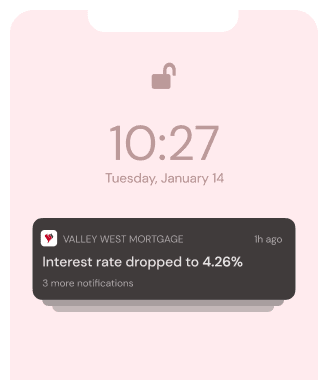3 Loan Documents You Should Know
Three Loan Documents You’ll Want to Know
Buying a new home (or refinancing your current home) is a process that requires quite a bit of paperwork. Thankfully, all of the paperwork isn’t thrown at you at once, instead it comes in stages. At each milestone of the loan process (beginning with disclosures and ending with your final loan docs), there is a different wave of documents that you’ll have to read and sign. Depending on your loan terms and any unexpected findings during processing you may even have to sign some documents twice (or as many times as loan terms change). In this article, I’ll provide you with the names and descriptions of a few documents to keep in mind. The following documents are arguably the most important documents that you will encounter during the closing of your mortgage loan.
The Loan Estimate
The Loan Estimate, or LE for short, is a form that you’ll receive after applying for your home loan. You will receive a Loan Estimate from your mortgage lender no later than three days after completing your application. The Loan estimate shows the terms of the loan program you’re applying for, estimated payments based off your desired loan amount, and it shows your closing costs. If you’ve done a mortgage loan before (prior to October 2015), the LE replaces what you formerly knew as the GFE, or Good Faith Estimate. Your loan estimate is designed to clearly explain the cost of closing a loan.
The Closing Disclosure
The Closing Disclosure, or CD for short, is a form that is very similar to the Loan Estimate. The CD has updated fees and loan terms and shows not only what you will pay to close your loan as the borrower, but it also shows what every other party is doing financially. If your lender is giving any kind of credit towards your loan it will show on the CD. The CD also reflects when loan fees will be paid, either before closing, at closing, or by a third party. After you sign your initial Closing Disclosure you have 3 days to ask any questions or change your mind before your final loan docs are drawn up. Every financial transaction that will take place during the closing of your loan will show up on the CD, read it carefully!
The Note
The Note in mortgage is the contract you sign at closing that details the amount of your loan, the interest rate, the payment due date, any penalties for late fees and other important financial info regarding your loan. This is the document that marks your home as collateral with your lender. If you were to default on your loan, having signed your Note puts you in a breach of contract and it’s what banks will refer to if you can’t or don’t pay your mortgage. Signing your Note is your promise to pay. Similar to how a car dealer holds the title to your vehicle until you have paid it off, the bank that is lending your home loan holds your Note until your mortgage is paid. Once it’s paid off, you’ll receive a copy (if not the original note) marked “Paid in Full”.
The mortgage loan process can be lengthy and requires a lot of reading and signing on your behalf. It’s important to be familiar with the documents that require the most attention. Proper knowledge and preparation is the key to keeping yourself from getting lost in the mortgage sauce.
When doing your research always be sure to consult great sources. Check out the sources for this article below!
https://www.consumerfinance.gov/askcfpb/1995/what-is-a-loan-estimate.html
https://www.consumerfinance.gov/askcfpb/1983/what-is-a-closing-disclosure.html
https://www.quickenloans.com/blog/whats-closing-disclosure-important
https://www.quickenloans.com/mortgage-glossary/mortgage-note
https://www.thebalance.com/definition-of-deed-of-trust-1798782


